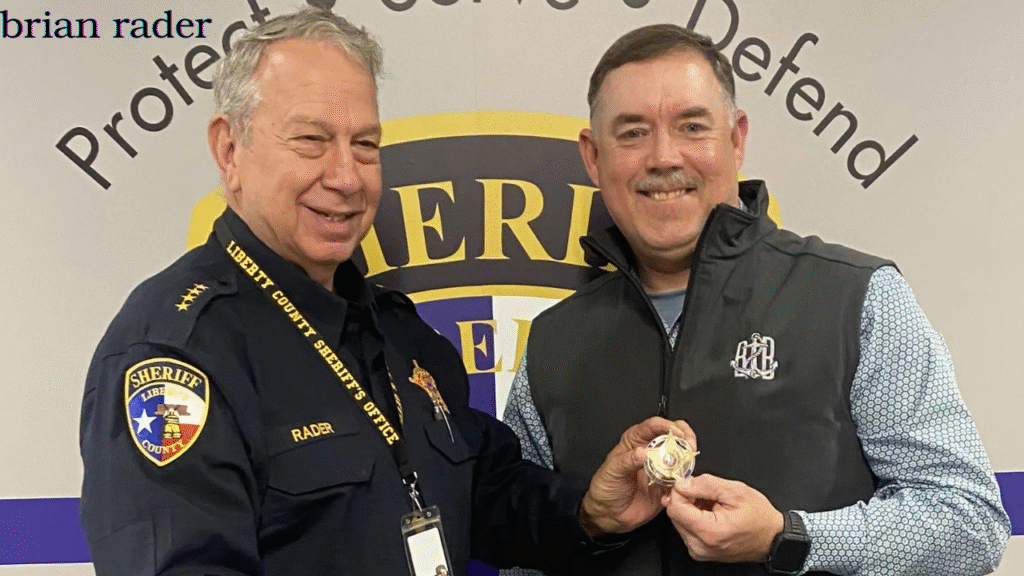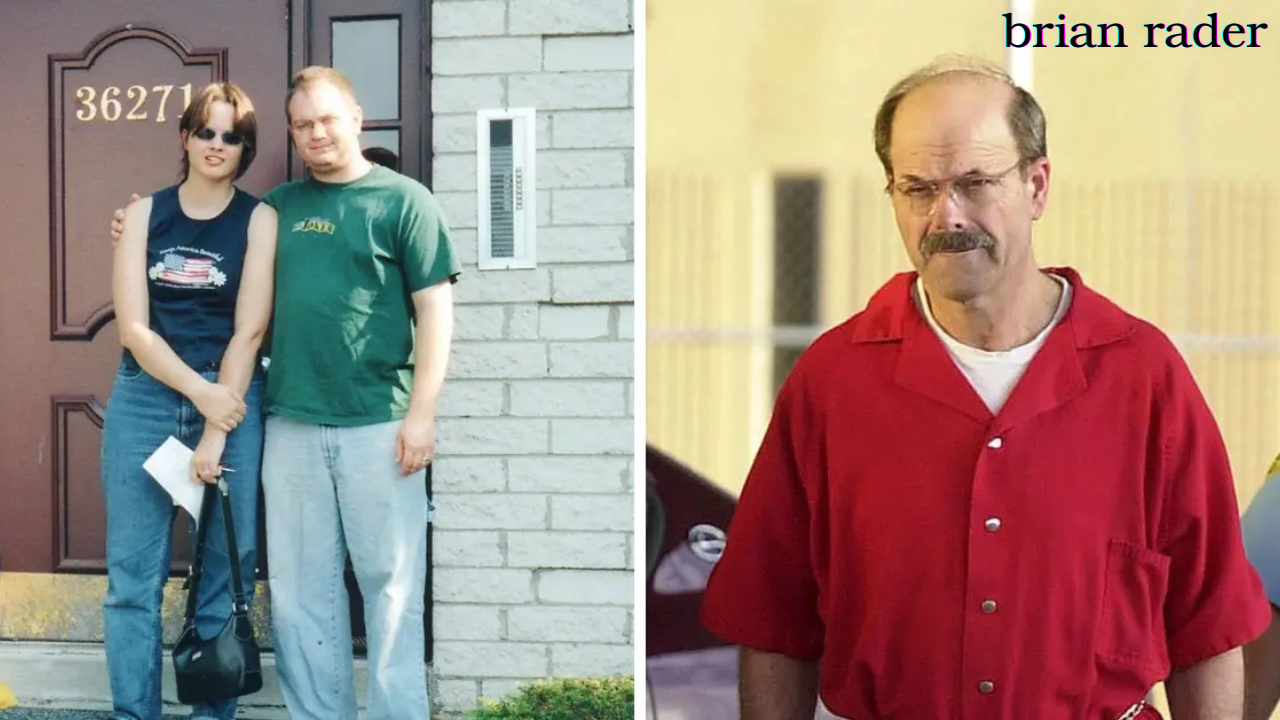The name “BTK Killer” echoes hauntingly in the annals of American criminal history, representing one of the most notorious serial killers of the 20th century—Dennis Rader. But amid the chilling crimes and sensational headlines lies a lesser-known figure: Brian Rader, the only son of the man who terrorized Wichita, Kansas, for decades. While the media extensively covered the atrocities of Dennis Rader, Brian’s story remains largely in the shadows, filled with silence, resilience, and a profound struggle to reclaim a personal identity independent of a criminal legacy.
Brian Rader did not choose to be in the public eye, nor did he have any part in his father’s heinous acts. Yet, he was thrust into an unwelcome spotlight after the arrest of Dennis Rader in 2005. This article aims to explore the life of Brian Rader—from his early upbringing to the aftermath of the shocking revelations about his father. In doing so, we aim to humanize a man who has lived with one of the most complex inheritances imaginable.
Through this journey, we will delve into Brian’s life before and after the arrest, the media’s impact on his privacy, the ethical dilemmas of public scrutiny, and the resilience he has shown in navigating unimaginable circumstances. His story deserves to be told—not for sensationalism, but for understanding and empathy.
Who Is Brian Rader
Brian Rader was born in the late 1970s into what appeared to be a quiet, suburban American family. He grew up in Park City, Kansas, in a home that seemed typical from the outside. His father, Dennis Rader, worked as a compliance officer and was active in church and local community groups. His mother, Paula Rader, was a supportive presence in his life, often described as nurturing and devoted. Brian had a relatively normal upbringing, attending local schools, participating in family activities, and developing a strong sense of discipline and responsibility.
Brian showed early interest in structured environments, which later led him to join the U.S. Navy. This decision seemed fitting for someone who valued order and service. In the Navy, Brian reportedly excelled, earning respect from his peers and superiors. At the time, he had no idea that the man he looked up to—his father—was living a secret life as a serial killer. For most of his life, Brian viewed Dennis Rader not as a monster, but as a dependable father figure.
Throughout his early years, there were no public indications that would link Brian to any criminal behavior. On the contrary, he seemed to represent the ideals of discipline, service, and decency. His accomplishments in the Navy were particularly impressive, and he seemed to be carving out a life for himself far removed from the quiet Kansas suburb he once called home. But everything changed in 2005, when the truth about his father’s double life came crashing down in the most public way imaginable.
The Shocking Revelation Discovering the Truth
In 2005, the world was stunned when Dennis Rader was arrested and identified as the infamous BTK Killer—short for “Bind, Torture, Kill.” For Brian Rader, the news came as a devastating shock. At the time of his father’s arrest, Brian was serving in the Navy and had no idea about his father’s gruesome secret life. The arrest made national headlines, and the fallout was immediate and overwhelming. Brian found himself at the center of a media storm he never asked to be a part of.
Imagine learning that someone you admired and trusted—someone who raised you—is capable of unimaginable horrors. That was the reality Brian faced. Reports suggest that he was blindsided, with no prior knowledge of his father’s crimes. In interviews and public accounts, law enforcement officials noted that Dennis Rader kept his family completely in the dark. Brian’s shock and disbelief mirrored that of his mother and sister, who also claimed to have been unaware of the crimes.
The revelation marked the beginning of a painful transformation in Brian’s life. His once-stable identity was now tied to a legacy of terror and violence. Friends, colleagues, and strangers began to look at him differently—not because of who he was, but because of who his father was. The emotional and psychological toll was immense, forcing Brian into a period of introspection, isolation, and ultimately, resilience.
Life in the Shadow of a Serial Killer

Living in the shadow of a serial killer is a burden few can comprehend. For Brian Rader, this meant navigating a world that constantly associated him with his father’s crimes—despite having no involvement. The media’s relentless coverage of the BTK case often dragged Brian’s name into public discussions, sometimes with little regard for his privacy or mental well-being. This unwanted attention complicated his efforts to lead a normal life, free from the chains of his father’s notoriety.
The stigma attached to being the child of a convicted serial killer is profound. Brian faced unique challenges—every relationship, job opportunity, and public interaction became a potential reminder of a past he did not create. Some reports suggest that he even changed his name and kept a low profile in an attempt to escape the association. Maintaining a sense of normalcy proved incredibly difficult when the world viewed him through the lens of infamy.
His mother, Paula Rader, filed for divorce shortly after Dennis Rader’s arrest, further fragmenting the family. Despite these immense pressures, Brian continued to seek solace and stability, reportedly returning to military or civil service roles in order to stay grounded. These decisions highlight his quiet resilience and determination to carve out an identity separate from his father’s legacy.
What stands out most is Brian’s silence. Unlike many caught in similar situations, he has chosen not to speak publicly. This silence speaks volumes—not of shame, but of strength. It reflects a man who refuses to be defined by someone else’s crimes.
Moving Forward: Healing and Personal Resilience
In the years following his father’s arrest, Brian Rader has largely disappeared from the public eye. His decision to maintain a low profile is both understandable and admirable. After all, healing from such trauma requires time, space, and privacy—luxuries often denied to those entangled in high-profile criminal cases. Despite the media frenzy, Brian has focused on rebuilding his life and forging a path forward.
Brian’s continued commitment to service, possibly within the military or in a civilian capacity, suggests a deep-rooted resilience. He has reportedly avoided interviews and declined to participate in documentaries, choosing instead to live quietly. This speaks to his desire to move on, to define himself on his own terms. In a world that often rewards oversharing, Brian’s restraint is powerful. It symbolizes a quiet defiance against the narrative that he should be forever shackled by his father’s deeds.
Healing from such a traumatic legacy involves confronting complex emotions—grief, betrayal, confusion, and even guilt, despite no wrongdoing. Experts in trauma psychology often cite the importance of reclaiming one’s story, and Brian appears to be doing just that, even if silently. His resilience serves as a reminder that people are more than their family names.
His journey, though hidden from view, is a testament to the human spirit’s ability to survive, adapt, and eventually thrive, even in the face of profound darkness.
Public Perception and Ethical Considerations
The public’s fascination with true crime often blurs ethical boundaries, especially when it comes to the families of perpetrators. Brian Rader’s case serves as a cautionary tale about the dangers of guilt by association. Media outlets frequently capitalize on shock value, sometimes sacrificing empathy and ethical reporting. But the truth is simple: Brian had no involvement in his father’s crimes and deserves the same respect and privacy as any other innocent person.
Public perception is often shaped by sensationalized narratives, and it takes conscious effort to look beyond headlines. Brian’s story challenges us to rethink our assumptions and exercise compassion. The ethical question becomes clear: How much scrutiny is too much when it comes to relatives of infamous criminals? In most legal and moral frameworks, individuals are judged by their own actions—not the actions of their family.
It’s crucial to understand the trauma that people like Brian endure. They are forced to grapple with not only the emotional devastation of a loved one’s betrayal but also public judgment and media intrusion. Empathy, not sensationalism, should guide how we engage with their stories.
Brian Rader’s life underscores the need for a more thoughtful and compassionate approach to crime coverage—one that separates fact from bias and respects the dignity of those who are victims by proxy. In doing so, we can begin to shift the narrative from one of spectacle to one of understanding and humanity.
Conclusion
Brian Rader’s life is a compelling narrative of quiet strength in the face of overwhelming adversity. As the son of one of America’s most notorious serial killers, he was thrust into a world of media scrutiny, emotional devastation, and public curiosity. Yet, through it all, he has maintained his dignity, chosen silence over spectacle, and worked to forge a life defined not by his father’s crimes but by his own values.
His story reminds us of a crucial truth: individuals are not the sum of their family members’ actions. Brian Rader deserves to be recognized not for his father’s legacy, but for the resilience, courage, and humanity he has demonstrated in the years since that legacy was exposed. As we engage with true crime stories, let us not forget the silent victims—those left behind to pick up the pieces and start anew.
FAQs
Is Brian Rader involved in any crimes?
No, Brian Rader has never been involved in or accused of any criminal activity. He has lived a law-abiding life.
What does Brian Rader do now?
Brian reportedly served in the U.S. Navy and has chosen to live a private life since his father’s arrest. Details about his current profession remain confidential.
Has Brian Rader spoken publicly about his father?
No, Brian has chosen not to make any public statements or appear in interviews, documentaries, or media features.
How did Brian Rader react to the BTK revelations?
Like the rest of his family, Brian was reportedly shocked and devastated by the revelations. He had no prior knowledge of his father’s crimes.
Why is Brian Rader’s story important?
Brian’s story is a powerful reminder of the importance of empathy, ethical reporting, and the distinction between a criminal and their family members.
You May Also Read: https://techbusinessus.com/incfile-llc/





